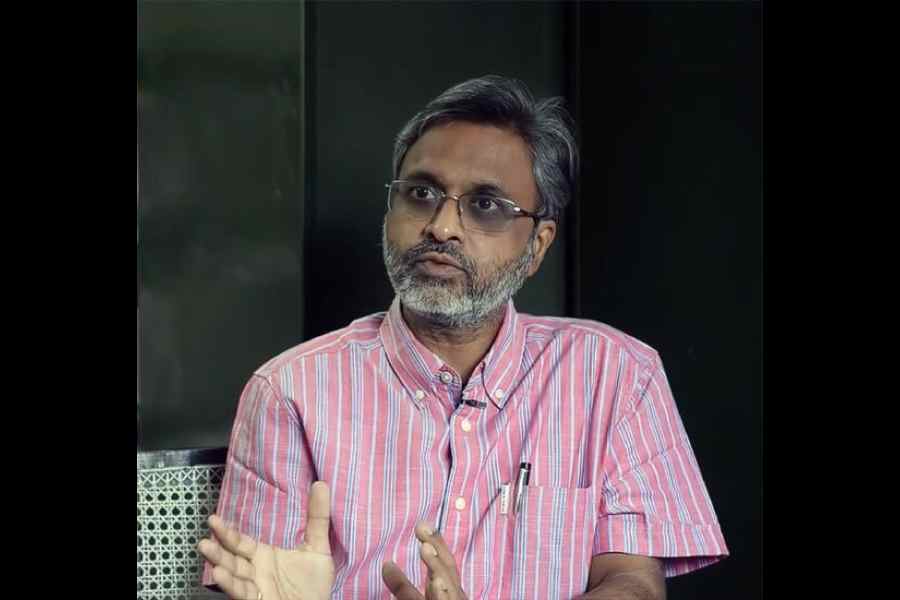Tirunelveli Ezhucciyum Vaa. Vuu. Ci. Yum, 1908 (Tirunelveli Uprising and VOC), a historical work in Tamil by professor and historian A.R. Venkatachalapathy, has been chosen for the Sahitya Akademi Award 2024 in the research category, providing a shot in the arm for those unravelling a little explored area of the Indian freedom movement in the south.
The research work, published by the Nagercoil-based Kalachuvadu Publications in Kanniyakumari district in January 2022, shines a sharper light on the political and nationalist activities of V.O. Chidambaram Pillai (1872-1936), popularly known as VOC, a freedom fighter who launched the first Indian shipping company to challenge British maritime hegemony. The company was named Swadeshi Shipping.
The work is centred around the riots in Tirunelveli district on March 13-14, 1908, as the revolutionary fervour in the wake of the Bengal partition in 1905 wafted to the south.
The ripple effects of the Swadeshi Movement in Bengal and the mass protests and the arrest of revolutionary leader Bipin Chandra Pal were felt as far as Tirunelveli in Tamil Nadu.
Venkatachalapathy’s book dives deep into the genesis of the riots and other disturbances in Tirunelveli district in March 1908, an upshot of VOC organising a “Swarajya Day” in Tirunelveli and Tuticorin to “celebrate” the release of Pal from prison on March 9, 1908.
The British tried to stall the celebrations, but VOC and fellow revolutionaries, including Subramanya Siva, went ahead and were arrested. This sparked off the riots in Tirunelveli district “with police firing killing four people”, the historian says in his book. It was the first uprising down south during that early phase of the freedom movement, largely inspired by leaders like Bal Gangadhar Tilak.
The patriotic spirit of this lawyer-turned-political-activist had earned him the sobriquet “Kappalottiya Tamizhan”, the first Tamil-speaking Indian to run a “Swadeshi steamship” in Tuticorin that took the British India Steam Navigation Company head-on. He did not flinch, despite all the repression and hardships the British inflicted, including an extremely inhuman jail term in Coimbatore prison where he was “yoked to the oil expeller in place of a bullock and made to go around to expel oil”.
This work has been a labour of love for the historian, who is currently a professor at the Madras Institute of Development Studies. “I am delighted by the Sahitya Akademi award for this book because I became a historian by studying VOC and his associates in the national movement, in fact, I am thrilled,” Venkatachalapathy told The Telegraph here.
“Right from my schooldays I was drawn towards VOC,” he said, adding that it took him several years of painstaking research to write a book on the shipping saga. “His selfless life was inspirational and the big dreams he had to chase in fighting British supremacy captured my dreams. I started reading and writing about VOC since 1981,” Venkatachalapathy said.
The author’s subsequent work in English released earlier this year — Swadeshi Steam — V.O. Chidambaram Pillai and the Battle Against the British Maritime Empire — covers one major facet of VOC’s social and political life though the floating of the Swadeshi company was the freedom fighter’s “crowning achievement”. The book chosen for the award covers a wider spectrum of VOC’s role in the nationalist movement, a little-known crucial chapter in India’s freedom struggle from the south, Venkatachalapathy said.
Asked whether the award was a recognition at last of the “role” of freedom fighters from the south by mainstream historians, Venkatachalapathy said: “It has barely begun. We have a very long way to go. The contribution of south India to the making of modern India is huge. That has to be studied more and brought to mainstreamhistory.”











